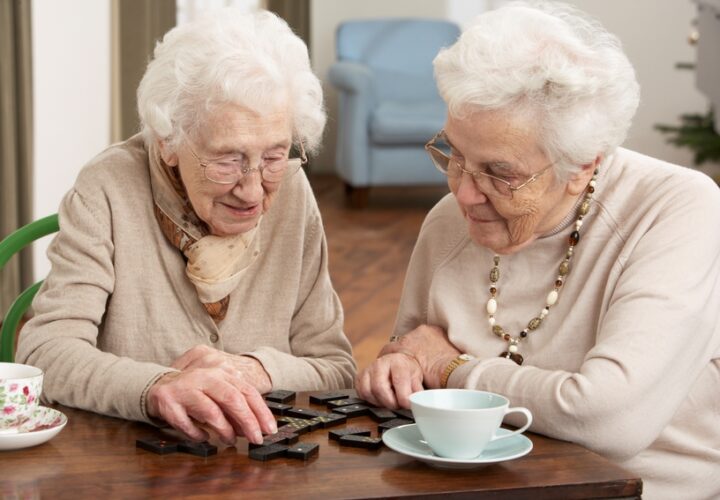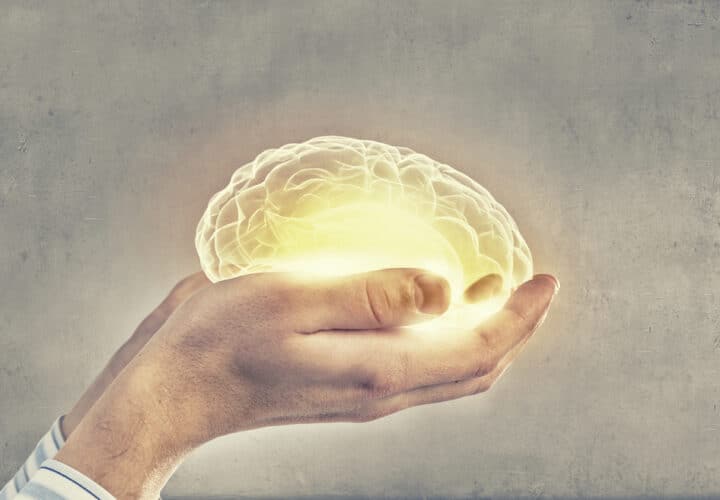Alzheimer’s disease can be a long haul, with some symptoms taking years and even decades to progress. By the time a patient is in end stage Alzheimer’s, however, the signs are clear. They’ve progressed to severe dementia, and will likely need around-the-clock care for physical and mental needs.
Reaching the end stage of the disease can be devastating. But experts and researchers are now exploring ways that resiliency, and a person-centered approach, can actually help people function better for longer in this final stage. Here’s what to expect in end stage Alzheimer’s, and how experts hope new approaches can have a positive effect.
Progression to severe dementia
End stage Alzheimer’s, also known as late stage or severe Alzheimer’s, falls into the last category of the progression of the disease. Breaking up the disease into stages helps explain what’s happening medically for both physicians and caregivers. It also helps caregivers prepare, said Sam Fazio, Senior Director of Quality Care and Psychosocial Research at the Alzheimer’s Association.
“We try to talk about the stages as a blueprint that might happen at different points throughout the disease,” Fazio told Being Patient. “But since this disease is so unique to the individual, you don’t want to try to stage people so they come up with a preconceived notion of what might happen. It can be used as a guide, but we should always think about ways that we can connect with people no matter what stage they’re in.”
Fazio said that while the final stage may differ for everyone, some of the common symptoms include being unable to connect with other people or the environment, growing more forgetful and becoming withdrawn. These symptoms may start in the middle stage, but become progressively worse in end stage.
The patient may also completely lose the ability to speak or communicate, according to Mayo Clinic. While your loved one may still say certain words or phrases, they may no longer be able to converse like you once used to.
And perhaps the most striking aspect of end stage Alzheimer’s is the patient’s dependence on 24-hour care for basic needs. That might mean a caretaker will have to help them with getting dressed, using the bathroom, showering and even activities as simple as eating.
What’s happening in the brain and body
The brain isn’t only involved in memory, thinking and emotions. The brain is actually in charge of every physical aspect of the body as well. It fuels muscle movement, nerve function and various other bodily functions.
The brain deteriorates and shrinks in end stage Alzheimer’s, and tau protein tangles accumulate. Because of this, the patient will likely see a sharp decline in physical ability. That might mean difficulty walking, standing up straight or even sitting without support. In the final stages, patients may lose the ability to swallow, or to control the bladder and bowels.
Because the person won’t be as physically active, and is possibly bed-bound, other concerns include skin health and pain. The breakdown of the body also means a person becomes more vulnerable to infections like pneumonia. This makes caregiving a lot more complicated and difficult, according to the National Institute on Aging.
Resiliency in end stage Alzheimer’s
But Fazio said that not all hope has to be lost in this final stage. As researchers learn more about the disease, they’re discovering that end stage Alzheimer’s can look very different for each individual — and a lot may have to do with environmental factors.
“There’s research saying what are some of the environmental factors that can make people more functional later into the disease,” he said. “Both social and physical approaches can support someone into being more functional [in this final stage].”
He notes these environmental factors revolve around a person-centered approach, which he’s focused on in his own research.
“How can I help [a patient] perform to the best of their ability for as long as possible?” Fazio said. “It’s a new area of research, and being talked about in the psycho-social world. There’s a lot of different things you’d see about the impact of this disease — negative things like stress and burden. Now you see the research community shifting, and saying, how can we look at a more comprehensive view of this disease? We know there’s stress and burden, impairment, that people are progressive. Yet we also see they’re showing resiliency and improved quality of life. How can we learn from that and replicate it?”
Being your loved one’s ‘prosthetic memory’
A person-centered approach emphasizes a patient’s strength, resiliency and functionality rather than their deficits, or the state of their disease. This is something that caregivers and especially loved ones and family members can take into their own hands.
“Knowing who that person is, and weaving that into everything you do — how can that allow the person to function more because you’re focusing on strengths rather than deficits,” Fazio said.
One way to do that is to be a “prosthetic memory” for your loved one, Fazio said. Sharing old photographs, music, favorite foods or reading books they enjoyed could help you connect with people in ways other than verbally.
“It’s about realizing that just because the person can’t communicate memories, it doesn’t mean they don’t know their memories,” Fazio said. “We don’t really know what’s going on in the brain. Let’s assume they know everything, but they’ve lost the ability to initiate that to us.”
Learn more about end stage Alzheimer’s and the features of a person-centered approach here.






